
The Heartbeat of Naples: Spaccanapoli
Spaccanapoli, which translates to 'Naples splitter,' is the vibrant core of the city's historic center. This narrow, buzzing street cuts through the heart of Naples, offering a captivating glimpse into the city's rich culture, history, and daily life. As you walk along Spaccanapoli, you will be enveloped by the sights, sounds, and smells that define Neapolitan life. The street is lined with centuries-old churches, quaint shops, bustling markets, and inviting cafes. Each corner tells a story, from the majestic façade of the Church of Gesù Nuovo to the striking Baroque architecture of the Santa Chiara Monastery. The area is a living museum where you can witness the seamless blend of ancient traditions and modern urban life. Food lovers will find Spaccanapoli a paradise. The aroma of freshly baked pizza, the sweet scent of pastries, and the rich smell of espresso fill the air. Be sure to sample local delicacies such as sfogliatella, a shell-shaped pastry, and limoncello, a zesty lemon liqueur. The street's numerous eateries and gelaterias offer an authentic taste of Naples that is not to be missed. Beyond its culinary delights, Spaccanapoli is a hub of artistic and cultural activity. Street performers, artists, and musicians add to the lively atmosphere. The area is also home to many boutique shops offering unique souvenirs, from handcrafted leather goods to intricate ceramics. Whether you're an art enthusiast, history buff, or foodie, Spaccanapoli has something to offer everyone.
Local tips in Spaccanapoli
- Wear comfortable shoes as the cobblestone streets can be uneven.
- Visit early in the morning to avoid the crowds and experience the street's daily life.
- Carry some cash, as many small shops and eateries may not accept credit cards.
- Take time to explore the side streets and alleys for hidden gems and local treasures.
- Try the local pastries and gelato for an authentic Neapolitan treat.
The Heartbeat of Naples: Spaccanapoli
Spaccanapoli, which translates to 'Naples splitter,' is the vibrant core of the city's historic center. This narrow, buzzing street cuts through the heart of Naples, offering a captivating glimpse into the city's rich culture, history, and daily life. As you walk along Spaccanapoli, you will be enveloped by the sights, sounds, and smells that define Neapolitan life. The street is lined with centuries-old churches, quaint shops, bustling markets, and inviting cafes. Each corner tells a story, from the majestic façade of the Church of Gesù Nuovo to the striking Baroque architecture of the Santa Chiara Monastery. The area is a living museum where you can witness the seamless blend of ancient traditions and modern urban life. Food lovers will find Spaccanapoli a paradise. The aroma of freshly baked pizza, the sweet scent of pastries, and the rich smell of espresso fill the air. Be sure to sample local delicacies such as sfogliatella, a shell-shaped pastry, and limoncello, a zesty lemon liqueur. The street's numerous eateries and gelaterias offer an authentic taste of Naples that is not to be missed. Beyond its culinary delights, Spaccanapoli is a hub of artistic and cultural activity. Street performers, artists, and musicians add to the lively atmosphere. The area is also home to many boutique shops offering unique souvenirs, from handcrafted leather goods to intricate ceramics. Whether you're an art enthusiast, history buff, or foodie, Spaccanapoli has something to offer everyone.
Iconic landmarks you can’t miss
The Sansevero Chapel
Explore the exquisite Baroque artistry and emotional depth of Sansevero Chapel in Naples, a must-see tourist attraction for art lovers and history enthusiasts alike.
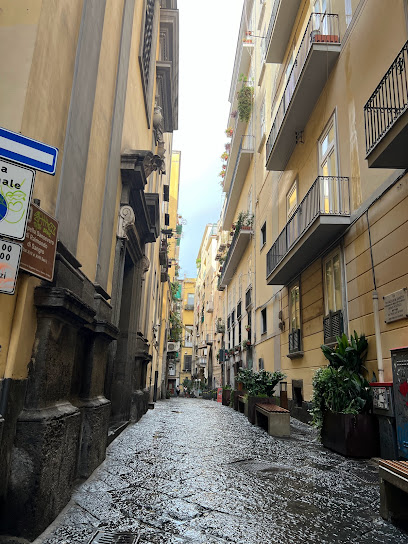
Castel Nuovo
Explore the grandeur of Castel Nuovo, a historic castle in Naples, rich in heritage and breathtaking views of the city and bay.
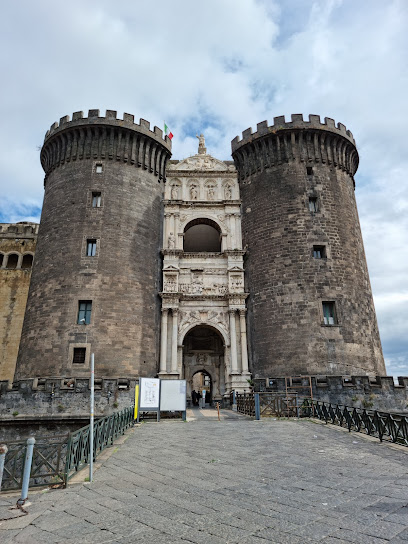
Underground Naples
Discover the hidden treasures of Naples beneath its vibrant streets at Underground Naples, an archaeological museum showcasing ancient tunnels and rich history.
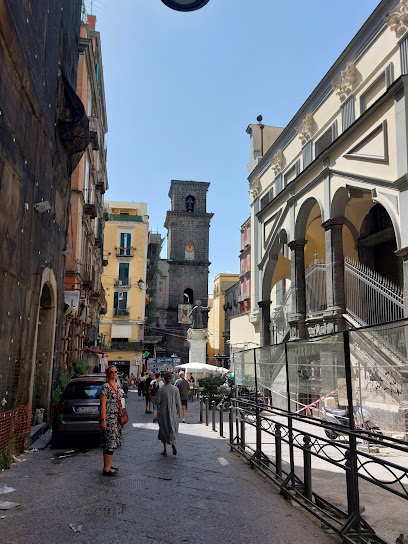
Duomo di Napoli
Explore the Duomo di Napoli, a Gothic masterpiece embodying Naples' rich history and vibrant culture, where art, architecture, and spirituality converge.
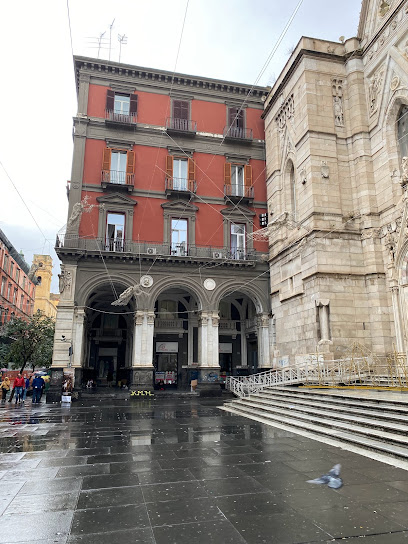
Complesso Monumentale di Santa Chiara
Explore the serene beauty and rich history of Naples at the Complesso Monumentale di Santa Chiara, a stunning monastery and cultural landmark.
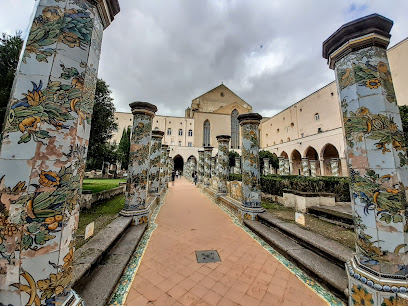
Catacombs of San Gennaro
Discover the haunting beauty and rich history of the Catacombs of San Gennaro in Naples, a must-visit cultural landmark for every traveler.
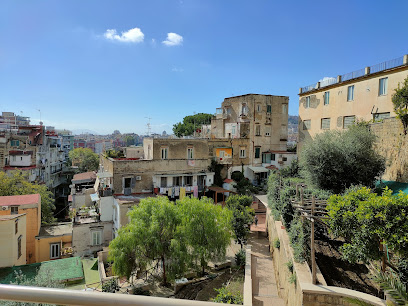
Royal Palace of Naples
Discover the Royal Palace of Naples, a stunning museum showcasing royal history, art, and gardens in the heart of Naples.
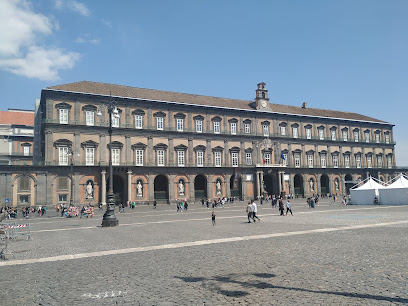
Napoli Sotterranea Guided Authorized Tour
Explore the fascinating underground world of Napoli Sotterranea, where history and artistry intertwine beneath the streets of Naples.
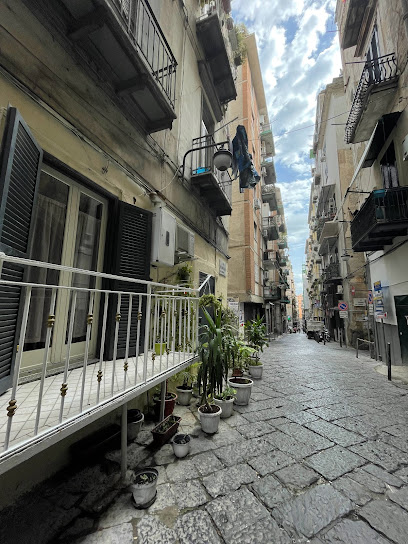
Catacombe di San Gaudioso
Uncover the fascinating history and artistry of Naples at the Catacombe di San Gaudioso, a unique underground burial site filled with ancient frescoes.
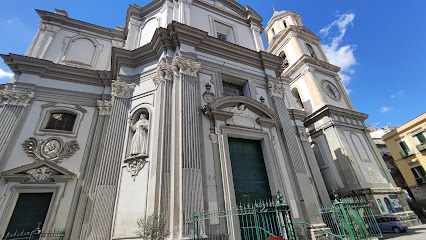
Porta Capuana
Explore Porta Capuana, a historic gateway in Naples, Italy, showcasing stunning architecture and vibrant local culture in the heart of the city.
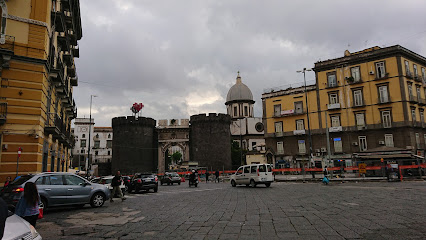
Puok (Spaccanapoli)
Discover Puok Burger in Naples for a delicious blend of local flavors and gourmet fast food in a vibrant atmosphere.
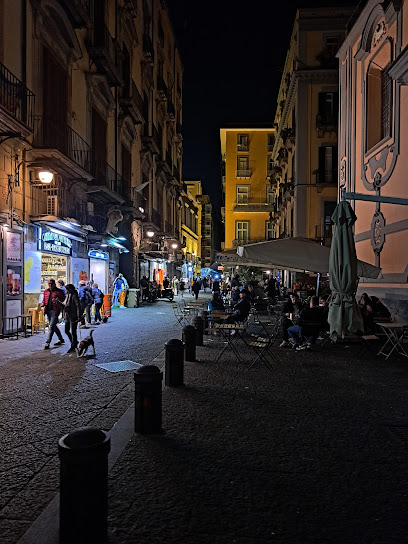
Trattoria e Pizzeria Spaccanapoli
Experience the heart of Naples with authentic Neapolitan pizza and traditional Italian cuisine at Trattoria e Pizzeria Spaccanapoli.
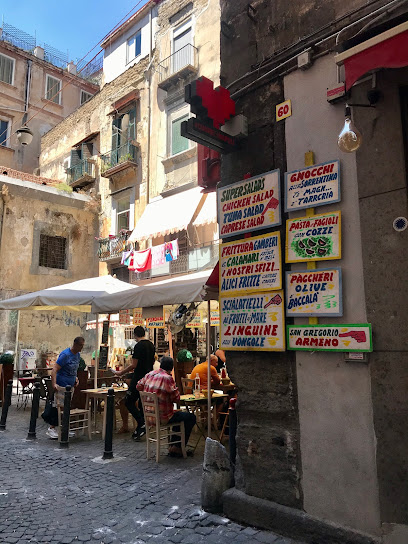
San Gennaro di Jorit Agoch
Discover the stunning San Gennaro di Jorit Agoch mural in Naples, a vibrant tribute that intertwines art, culture, and community in the heart of the city.
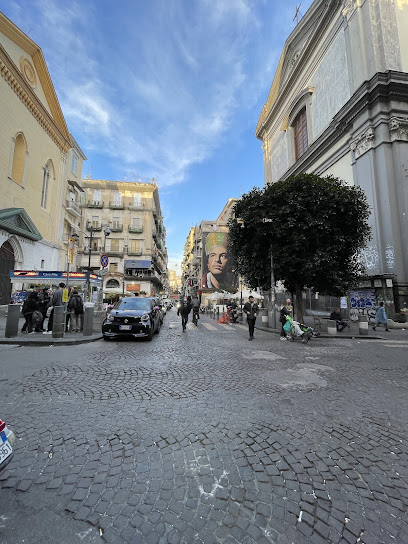
Antica Pizza Fritta da Zia Esterina Sorbillo Spaccanapoli
Experience the authentic taste of Naples at Antica Pizza Fritta da Zia Esterina Sorbillo, where tradition meets delicious fried pizza perfection.
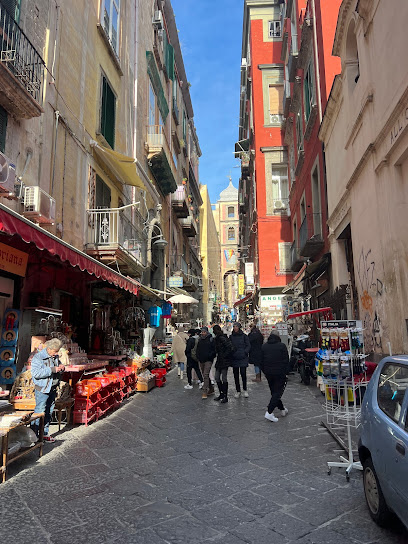
Decumano 31 il cuoppo ed altro
Experience the authentic taste of Naples at Decumano 31 il cuoppo ed altro, your go-to fast food destination for local street food delights.
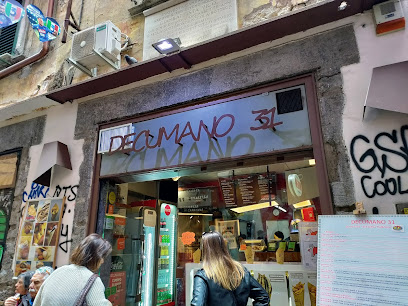
Unmissable attractions to see
National Archaeological Museum of Naples
Explore world-renowned Greek, Roman, and Egyptian antiquities in the heart of Naples at this must-see archaeological museum.

Complesso Monumentale di Santa Chiara
Explore Naples' Complesso Monumentale di Santa Chiara: A historic monastery with stunning Gothic architecture and serene cloisters.
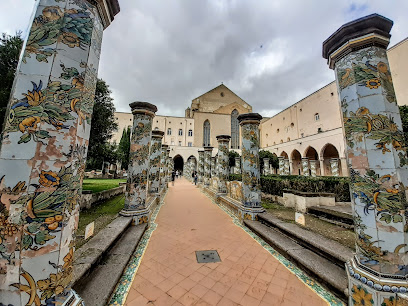
Catacombs of San Gennaro
Explore Naples' largest ancient burial site, the Catacombs of San Gennaro, with early Christian art, history, and the tomb of the city's patron saint.
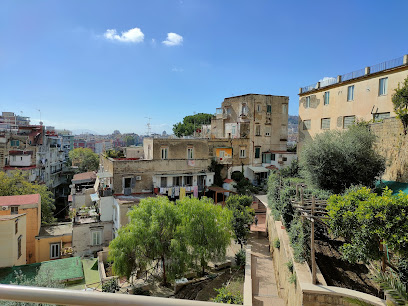
Royal Palace of Naples
Explore centuries of Neapolitan history and royal grandeur at the Royal Palace of Naples, a cultural landmark in the heart of the city.
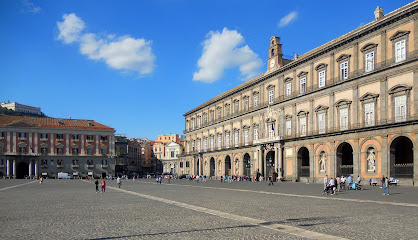
Museo del Tesoro di San Gennaro - Museum of the Treasure of San Gennaro
Discover centuries of art, history, and devotion at the Museo del Tesoro di San Gennaro in the heart of Naples.
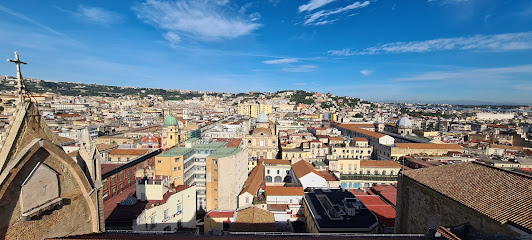
Via dei Presepi
Explore Naples' Via dei Presepi: a year-round celebration of handcrafted nativity scenes and Neapolitan artistry in the heart of the historic center.
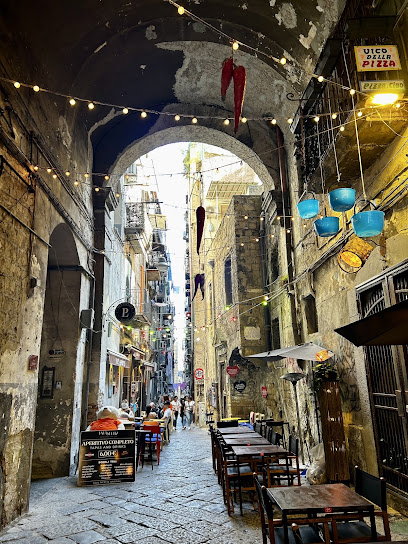
Inizio Spaccanapoli
Discover the vibrant heart of Naples at Inizio Spaccanapoli, where history, culture, and authentic Neapolitan life converge.
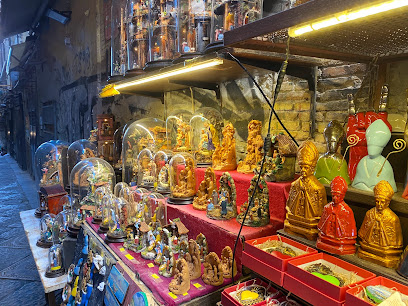
Essential places to dine
La Locanda Gesù Vecchio
Experience authentic Neapolitan cuisine at La Locanda Gesù Vecchio – a culinary treasure in the heart of Naples.
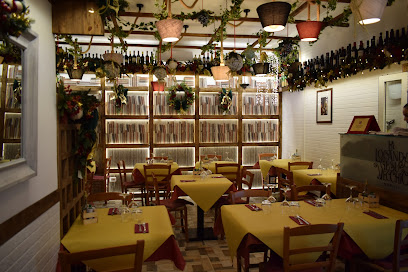
Trattoria Don Vincenzo
Savor authentic Neapolitan cuisine at Trattoria Don Vincenzo in Naples, where tradition meets flavor in every dish.
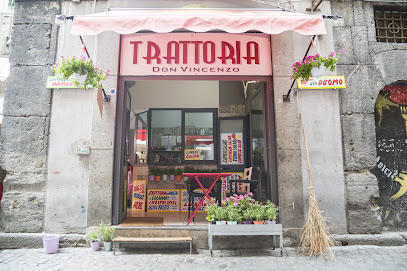
Re Lazzarone
Discover authentic Neapolitan cuisine at Re Lazzarone in Naples - where tradition meets flavor in every dish.
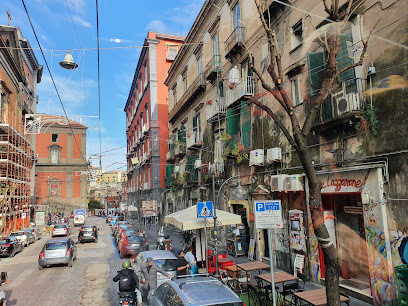
Taralleria Napoletana
Discover authentic Neapolitan flavors at Taralleria Napoletana—where traditional taralli meets contemporary tapas in a cozy setting.
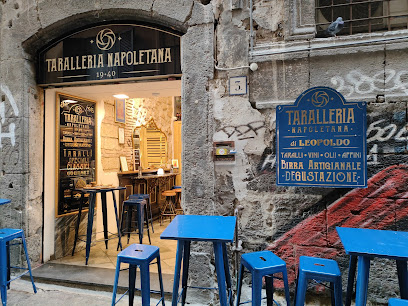
Trattoria e Pizzeria Spaccanapoli
Discover Trattoria e Pizzeria Spaccanapoli: A Culinary Gem in Naples Offering Authentic Neapolitan Pizza and Italian Delicacies.
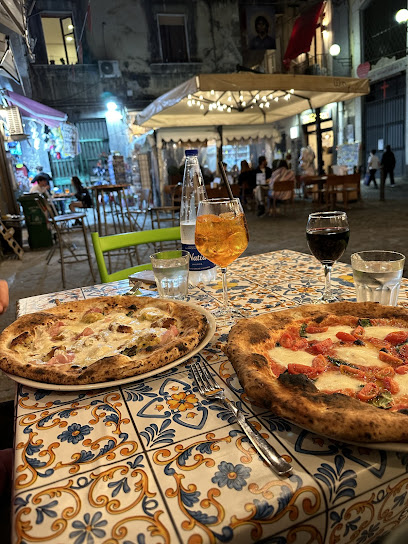
La Taverna di Santa Chiara
Experience authentic Neapolitan cuisine at La Taverna di Santa Chiara - where tradition meets flavor in every bite.
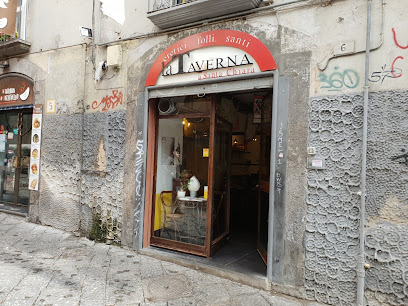
D'Angiò - Trattoria Napoletana
Savor authentic Neapolitan flavors at D'Angiò - Trattoria Napoletana, a culinary delight in the heart of Naples.
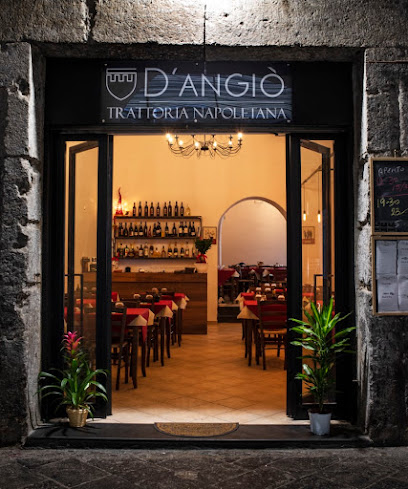
Antica Trattoria del Nilo - Spaccanapoli
Experience authentic Neapolitan cuisine at Antica Trattoria del Nilo in Spaccanapoli - where tradition meets flavor in every dish.
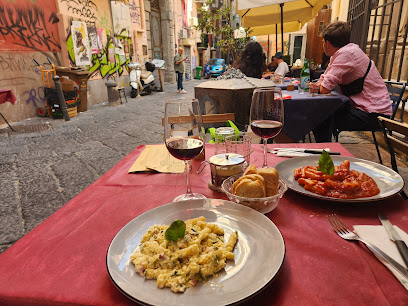
Decumano 31 il cuoppo ed altro
Experience the flavors of Naples at Decumano 31 - home of the authentic Neapolitan cuoppo and fast-food delights.
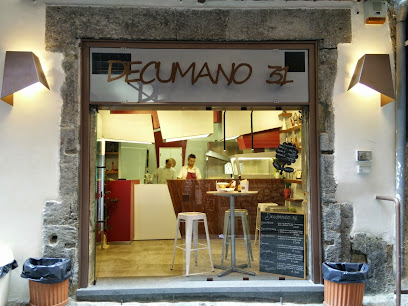
Tandem Spaccanapoli - La casa del Ragù
Savor authentic Neapolitan ragù at Tandem Spaccanapoli - La casa del Ragù, where tradition meets flavor in every dish.
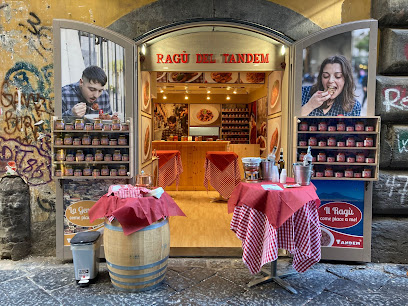
Markets, malls and hidden boutiques
London Store Napoli
Explore the vibrant world of fashion at London Store Napoli, your ultimate destination for clothing, shoes, and accessories in Naples.
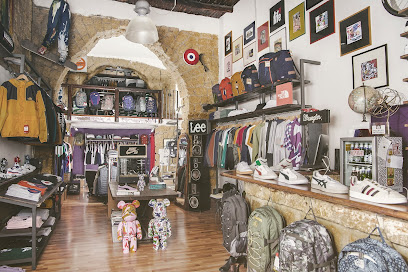
London Outlet Store
Discover unbeatable deals on clothing, shoes, and accessories at the London Outlet Store in Naples, a fashion paradise for savvy shoppers.
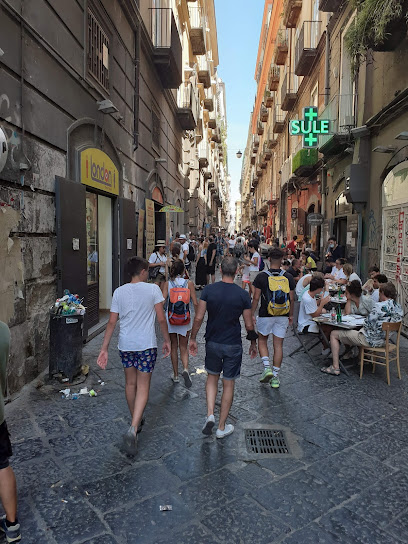
Oblomova
Discover unique vintage clothing and handmade accessories at Oblomova, a hidden gem in the heart of Naples that celebrates local fashion and artistry.
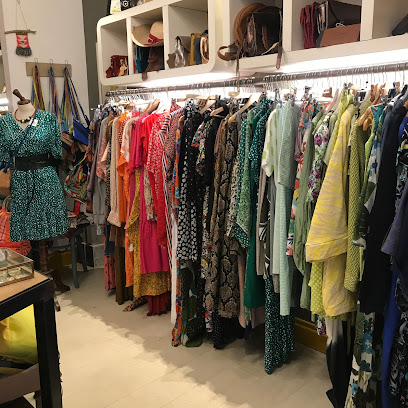
Mode e Costume Vintage
Explore a unique vintage clothing store in Naples that offers a curated collection of timeless fashion pieces full of history and style.
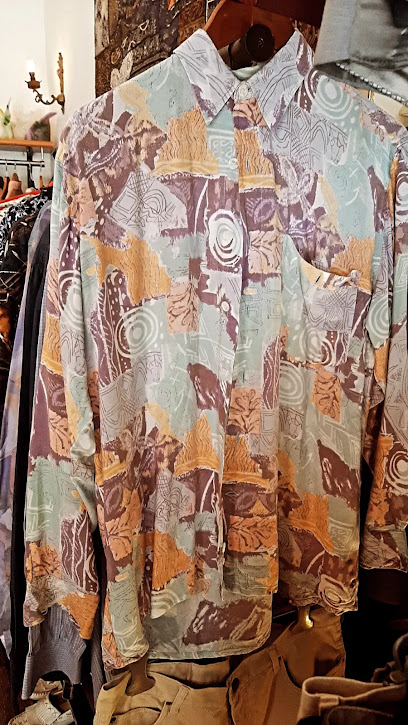
Nel Cuore di Napoli
Explore unique handicrafts and authentic souvenirs in the heart of Naples at Nel Cuore di Napoli, a charming boutique filled with local treasures.
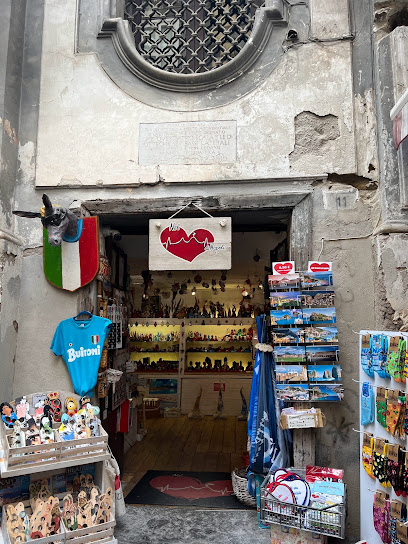
HEM
Explore HEM, Naples' premier vintage clothing store, offering unique fashion finds that celebrate timeless style and individuality.
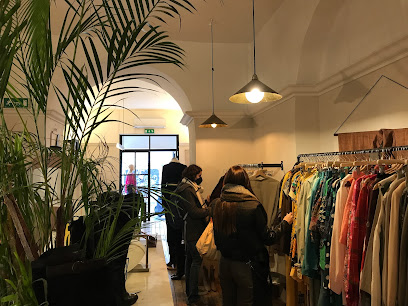
スパッカ ナポリ
Discover unique fashion and local craftsmanship at Spacca Napoli, the heart of Naples' vibrant clothing scene.
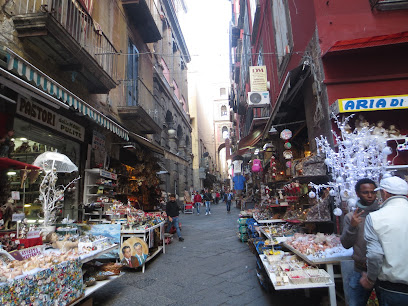
Napoli Nel Cuore
Discover unique souvenirs and local crafts at Napoli Nel Cuore, Naples' beloved souvenir store in the heart of the city.
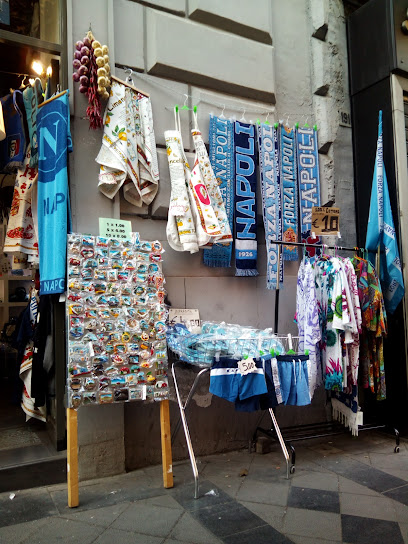
Vintage shops
Explore Naples' vintage shops for a unique shopping experience filled with history, culture, and hidden treasures waiting to be found.
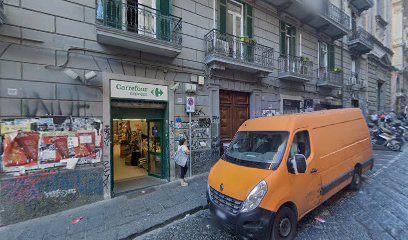
Lucio Ferrigno
Explore authentic Neapolitan craftsmanship at Lucio Ferrigno, your destination for unique souvenirs in the heart of Naples.
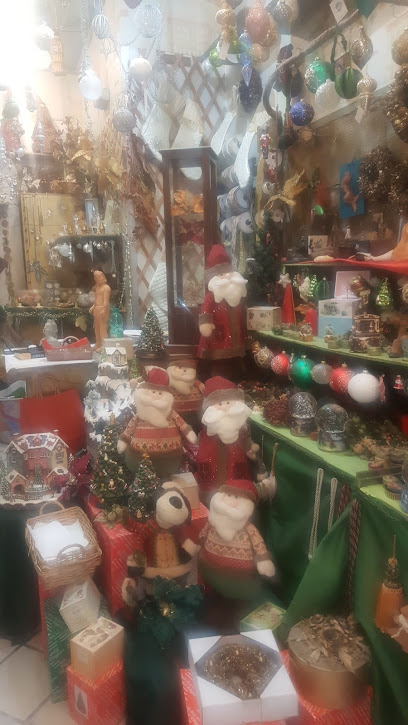
Essential bars & hidden hideouts
Shanti Art Musik Bar
Shanti Art Musik Bar: A vibrant blend of music, art, and drinks in the heart of Naples, offering a lively atmosphere for all visitors.
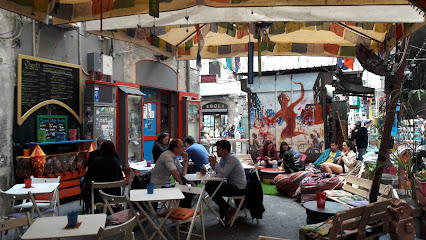
Taralleria Napoletana
Discover the flavors of Naples at Taralleria Napoletana, where traditional taralli and tantalizing tapas await in a cozy atmosphere.
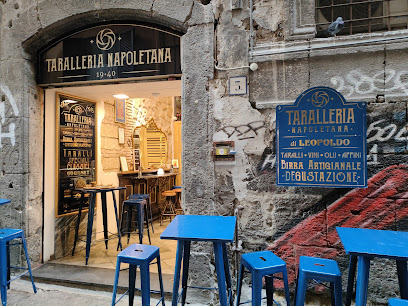
Bucopertuso - Public House
Experience the vibrant nightlife at Bucopertuso, Naples' go-to bar for craft beers, cocktails, and a taste of authentic Italian culture.
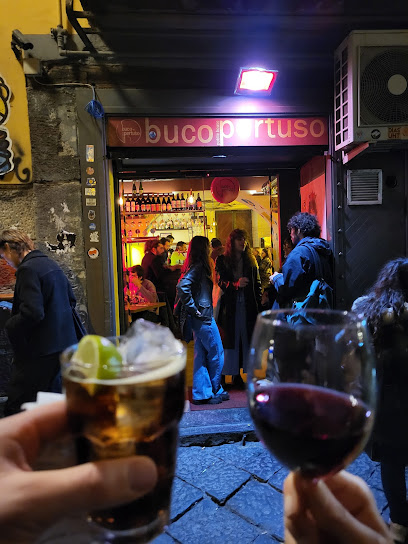
La Fesseria - Street Bar
Discover the essence of Naples nightlife at La Fesseria, a vibrant cocktail bar offering innovative drinks and a welcoming atmosphere.
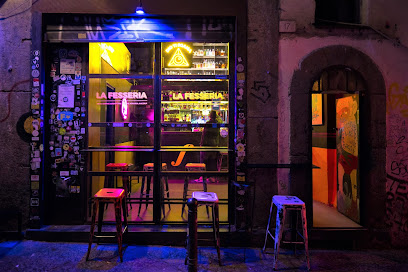
Caffè Spaccanapoli
Discover the authentic Neapolitan coffee experience at Caffè Spaccanapoli, where rich flavors and warm hospitality await.
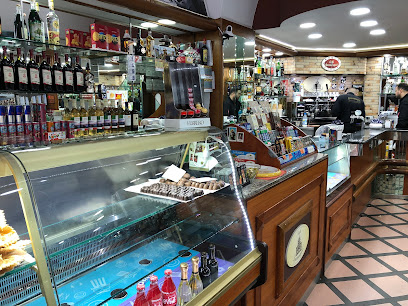
Espresso Napoletano SpaccaNapoli
Discover the heart of Naples at Espresso Napoletano SpaccaNapoli, where rich espresso meets authentic local culture.
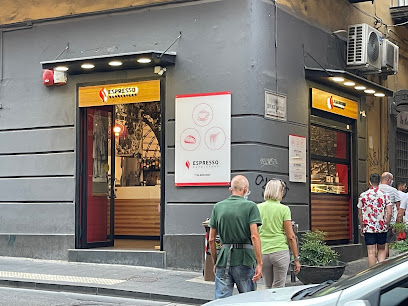
Decumano
Discover Decumano, a lively bar in Naples offering delicious drinks, local snacks, and a vibrant atmosphere in the heart of the city.
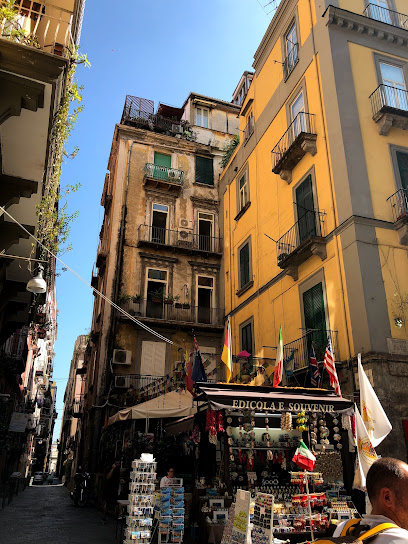
Bar Spacca spritz via tribunali 43
Experience the vibrant spirit of Naples at Bar Spacca, where authentic spritz and local delicacies await in the heart of the city.
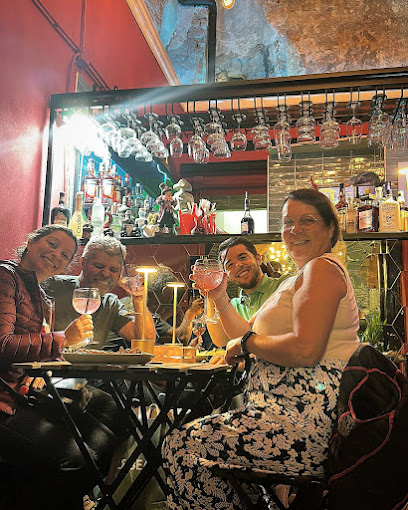
Caffè Spaccanapoli Sas
Experience authentic Neapolitan culture at Caffè Spaccanapoli Sas, a cozy bar serving delicious coffee and pastries in the heart of Naples.
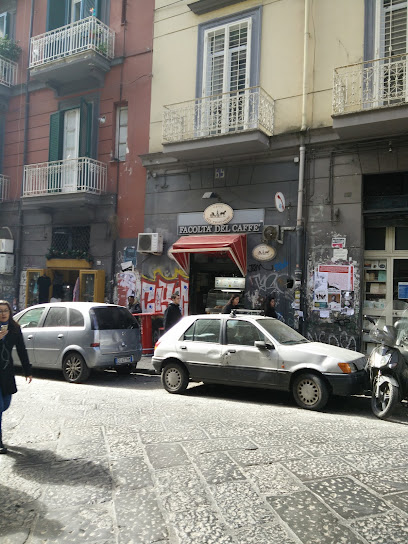
Decuman drink Food & Beer
Discover the vibrant flavors and atmosphere of Naples at Decuman Drink Food & Beer, the perfect bar and cafe for tourists.
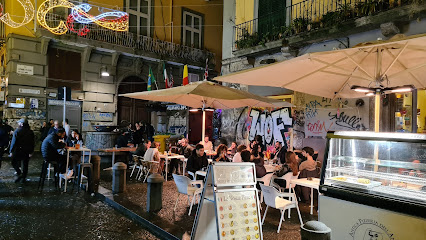
Local Phrases
-
- HelloCiao
[chow] - GoodbyeArrivederci
[ah-ree-ve-DEHR-chee] - YesSì
[see] - NoNo
[no] - Please/You're welcomePer favore/Prego
[pehr fah-VOH-reh/PRAY-goh] - Thank youGrazie
[GRAH-tsyeh] - Excuse me/SorryMi scusi/Scusa
[mee SKOO-zee/SKOO-zah] - How are you?Come stai?
[KOH-meh stai] - Fine. And you?Bene. E tu?
[BEH-neh. eh too] - Do you speak English?Parli inglese?
[PAHR-lee een-GLEH-zeh] - I don't understandNon capisco
[non kah-PEES-koh]
- HelloCiao
-
- I'd like to see the menu, pleaseVorrei vedere il menu, per favore
[voh-RAY veh-DEH-reh eel MEH-noo, pehr fah-VOH-reh] - I don't eat meatNon mangio carne
[non MAHN-joh KAR-neh] - Cheers!Salute!
[sah-LOO-teh] - I would like to pay, pleaseVorrei pagare, per favore
[voh-RAY pah-GAH-reh, pehr fah-VOH-reh]
- I'd like to see the menu, pleaseVorrei vedere il menu, per favore
-
- Help!Aiuto!
[a-YOO-toh] - Go away!Vai via!
[vah-ee vee-ah] - Call the Police!Chiama la polizia!
[KYAH-mah lah poh-LEE-tsyah] - Call a doctor!Chiama un dottore!
[KYAH-mah oon doh-TOH-reh] - I'm lostMi sono perso
[mee SOH-no PEHR-soh] - I'm illSto male
[stoh MAH-leh]
- Help!Aiuto!
-
- I'd like to buy...Vorrei comprare...
[voh-RAY kohm-PRAH-reh] - I'm just lookingSto solo guardando
[stoh SOH-loh gwahr-DAHN-doh] - How much is it?Quanto costa?
[KWAHN-toh KOHS-tah] - That's too expensiveÈ troppo caro
[eh TROH-poh KAH-roh] - Can you lower the price?Puoi abbassare il prezzo?
[pwah-ee ab-bah-SAH-reh eel PREH-tsoh]
- I'd like to buy...Vorrei comprare...
-
- What time is it?Che ora è?
[keh OH-rah eh] - It's one o'clockÈ l'una
[eh LOO-nah] - Half past (10)Sono le dieci e mezza
[SOH-no leh DEE-eh-chee eh MEHT-sah] - MorningMattina
[maht-TEE-nah] - AfternoonPomeriggio
[poh-meh-REE-joh] - EveningSera
[SEH-rah] - YesterdayIeri
[YEH-ree] - TodayOggi
[OH-jee] - TomorrowDomani
[doh-MAH-nee] - 1Uno
[OO-no] - 2Due
[DOO-eh] - 3Tre
[TREH] - 4Quattro
[KWAH-troh] - 5Cinque
[CHEEN-kweh] - 6Sei
[SAY] - 7Sette
[SEH-teh] - 8Otto
[OH-toh] - 9Nove
[NOH-veh] - 10Dieci
[DEE-eh-chee]
- What time is it?Che ora è?
-
- Where's a/the...?Dov'è...?
[doh-VEH] - What's the address?Qual è l'indirizzo?
[kwal eh leen-DEE-reet-soh] - Can you show me (on the map)?Puoi mostrarmi (sulla mappa)?
[pwah-ee mohs-TRAHR-mee SOOL-lah MAHP-pah] - When's the next (bus)?Quando passa il prossimo (autobus)?
[KWAHN-doh PAHS-sah eel PROHS-see-moh OW-toh-boost] - A ticket (to ....)Un biglietto (per ....)
[oon beelyet-toh pehr]
- Where's a/the...?Dov'è...?
History of Spaccanapoli
-
Spaccanapoli, meaning 'Naples Split', is a historic street that dates back to the Greek era when the city was known as Neapolis. The street served as a major thoroughfare, connecting various parts of the ancient city and is a remnant of the original grid layout established by the Greeks. This layout influenced the urban development of Naples throughout the centuries.
-
During the 16th and 17th centuries, under Spanish rule, Spaccanapoli became a vibrant center of cultural and social life. The Spanish introduced significant architectural styles, leading to the construction of numerous churches and palaces along the street. Notable examples include the Church of Gesù Nuovo and the Santa Chiara complex, which reflect the Baroque influence on Neapolitan architecture.
-
The 18th century saw Spaccanapoli flourish as a hub for artisans and craftsmen. Streets filled with workshops produced everything from ceramics to textiles, contributing to Naples' reputation as a center of craftsmanship. The area became known for its bustling markets and vibrant street life, showcasing the rich cultural tapestry of the city.
-
The unification of Italy in the 19th century brought significant changes to Spaccanapoli. With the new kingdom's focus on modernization, the area experienced infrastructural improvements, though it also faced socioeconomic challenges. The historic fabric of the neighborhood began to shift as new political and social dynamics unfolded in Naples.
-
During World War II, Spaccanapoli was heavily impacted by bombings, which destroyed many buildings and altered the landscape of the neighborhood. Post-war reconstruction efforts aimed to restore its historical character while adapting to modern needs. This period saw a revival of cultural activities and a renewed interest in preserving Naples' rich heritage.
-
In recent decades, Spaccanapoli has undergone a cultural renaissance, becoming a focal point for tourism in Naples. The street is now lined with shops, cafes, and historical sites, attracting visitors eager to experience the authentic Neapolitan lifestyle. Events celebrating local traditions, such as the Feast of San Gennaro, continue to enrich the cultural landscape of Spaccanapoli.
Spaccanapoli Essentials
-
Spaccanapoli is centrally located in Naples, making it easily accessible from various neighborhoods. You can take the Metro Line 1 to the Duomo station, which is a short walk from Spaccanapoli. From the Central Train Station (Stazione Centrale), you can use Metro Line 2 to Garibaldi and transfer to Line 1. Buses and trams also connect different parts of the city to the area.
-
Spaccanapoli is best explored on foot, as its narrow streets are often congested with traffic. Public transportation options include buses and the Metro, with the nearest station being Duomo. Taxis are available but can be expensive. Alternatively, consider renting a bicycle through local bike-sharing programs, which can be a fun way to navigate the city.
-
While Spaccanapoli is generally safe for tourists, petty crime such as pickpocketing can occur, especially in crowded areas. Be cautious in the vicinity of the central train station and the Quartieri Spagnoli, particularly at night. Always keep your belongings secure and avoid displaying valuables.
-
In case of emergencies, dial 112 for police, fire, or medical assistance. The nearest hospital is Ospedale dei Pellegrini, located a short distance from Spaccanapoli. Always carry a copy of your passport and travel insurance details. For minor ailments, local pharmacies can provide over-the-counter medication.
-
Fashion: Do wear comfortable shoes for walking; don't wear overly revealing clothing. Religion: Do respect local customs, especially in churches; don't take photos where prohibited. Public Transport: Do validate your ticket before boarding; don't eat or drink on public transport. Greetings: Do greet locals with a friendly 'Ciao'; don't be overly formal. Eating & Drinking: Do enjoy street food and local eateries; don't refuse food offered by locals, as it’s considered impolite.
-
To experience Spaccanapoli like a local, visit the bustling street markets early in the morning for fresh produce and local delicacies. Engage with street vendors and try authentic Neapolitan pizza from small, family-run pizzerias. Attend local festivals or events to immerse yourself in the culture. Don't shy away from speaking Italian; even a few phrases can enhance your experience and interactions with locals.
Trending Landmarks in Spaccanapoli
-
The Sansevero Chapel
-
Castel Nuovo
-
Underground Naples
-
Duomo di Napoli
-
Complesso Monumentale di Santa Chiara
-
Catacombs of San Gennaro
-
Royal Palace of Naples
-
Napoli Sotterranea Guided Authorized Tour
-
Catacombe di San Gaudioso
-
Porta Capuana
-
Puok (Spaccanapoli)
-
Trattoria e Pizzeria Spaccanapoli
-
San Gennaro di Jorit Agoch
-
Antica Pizza Fritta da Zia Esterina Sorbillo Spaccanapoli
-
Decumano 31 il cuoppo ed altro
Nearby Cities to Spaccanapoli
-
Things To Do in Herculaneum
-
Things To Do in Pompeii
-
Things To Do in Sorrento
-
Things To Do in Positano
-
Things To Do in Capri
-
Things To Do in Ravello
-
Things To Do in Amalfi
-
Things To Do in Rome
-
Things To Do in St. Peter's Square
-
Things To Do in Apostolic Palace
-
Things To Do in Vatican Necropolis
-
Things To Do in St. Peter's Basilica
-
Things To Do in Sistine Chapel
-
Things To Do in Gregorian Etruscan Museum
-
Things To Do in Vatican Museums












